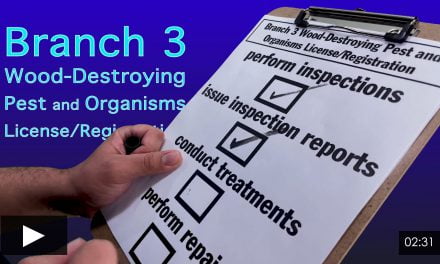This article digests the bills relevant to real estate that passed and were signed into law in California during 2019.
How a bill becomes a law in California: the basics
Dozens of bills passed in 2019 that are relevant to your practice as real estate agents and brokers, mortgage lenders, landlords and real estate investors.
How did these bills go from ideas to laws?
When a legislator decides to author a bill, the idea and language gets sent to the Legislative Counsel’s Office to be drafted into an official bill. Once approved by the author, the bill is introduced in either the state’s Assembly or Senate, depending on which body the bill’s author is a member of.
Sometimes, bills are the result of concerned citizens contacting their local assemblyperson or state senator. Other times, the bill originates with a legislator, but citizens weigh in at some point during the process.
Editor’s note — Are you interested in becoming more involved? Follow our Legislative Gossip page throughout the year to stay informed. Reach out to your local legislators with concerns and attend local city council meetings for the most impact.
Bills that are authored by an assembly member are denoted by Assembly Bill (AB) and bills authored by senators are denoted by Senate Bill (SB).
Over the course of several months, the bill goes through revisions as it bounces around committees and stands up (or fails) against floor votes. The bill needs to be approved by a majority of each house, gaining at least 21 votes in the Senate and 41 votes in the Assembly. The exceptions are urgency measures and appropriation bills, which require a two-thirds majority, or 27 votes in the Senate and 54 in the Assembly.
Once the bill passes in both houses, it goes to the Governor for a signature. The Governor may either sign, approve without signing or veto the bill. When the bill is vetoed, the bill may still be passed with a two-third majority in both houses. When the Governor signs or approves without signing, the bill goes to the Secretary of State to be chaptered.
All laws listed below take effect beginning January 1, 2020, unless otherwise noted. Some have expiration dates, which are noted when applicable.
Find the relevant laws which have passed, organized by real estate category and what areas of practice the laws will impact, below. For more details, click on the bill numbers to view the new laws in their entirety.
Practice
AB 892 requires multiple listing services (MLS’s) to maintain listing data for no less than three years from the date the listing was created. It also revises the Transfer Disclosure Statement (TDS) and narrows the obligation of a broker to conduct an inspection of the property and disclose material facts only to those brokers working with a prospective buyer of residential one-to-four unit property or a manufactured home. [See RPI Form 304]
AB 1018 adds to the legal descriptions of an appraisal an exclusion for an opinion offered by a home inspector, on top of currently existing exclusions for opinions offered by real estate licensees, engineers and land surveyors.
Property management
AB 338 requires mobilehomes to have smoke alarms installed in each room used for sleeping that are sold or rented beginning January 1, 2020.
AB 1110 requires a landlord increasing the rent of a month-to-month unit by 10% and no more than 15% to provide 90 days’ notice before the increase. Or, a landlord increasing the rent on a month-to-month unit by more than 15% needs to provide at least 120 days’ notice.
AB 1188 allows a tenant to temporarily permit a person at risk of homelessness to occupy the tenant’s dwelling, with written approval of the landlord. This bill expires January 1, 2024.
AB 1399 specifies that a landlord who pays a penalty under an Ellis Act eviction is not exempted from offering their unit to the prior tenant when it returns to the market.
AB 1482 prohibits a landlord from terminating the lease without cause of a tenant who has occupied the property for at least 12 months, and for no-fault just cause terminations, requires the landlord to provide one month’s rent to cover relocation costs. Further, beginning March 15, 2019, a residential landlord is limited from increasing rent no more than twice in 12 months. Each increase can be no more than 5% plus the percentage change in the cost of living, or 10%, whichever is lower, of the lowest gross rental rate charged for the immediately preceding 12 months. The provisions in this bill expire January 1, 2030. Read more.
SB 13 authorizes the creation of accessory dwelling units (ADUs) in areas zoned for single family residences or multi-family residences. It also broadens application, occupancy, parking and minimum square footage requirements. For example, until January 1, 2025, it prohibits local agencies from imposing an ADU owner-occupant requirement.
SB 18 extends indefinitely the Keep Californians Housed Act, which previously expired at the end of 2019. The Act requires a 90-day notice to quit to be provided to a tenant or subtenant under a month-to-month lease before the tenant needs to leave a foreclosed property. Tenants in possession of a unit with a fixed-term lease may reside at the property until the end of the lease term.
SB 274 makes several rule changes for mobilehome park tenancies, including requirements for the manager to notify a previous tenant of a park rebuilt after a disaster via mail, telephone and email; sellers of mobilehomes to notify the park manager before a sale closes and for the manager to provide the seller or purchaser with standards the manager will use to approve the new tenancy; and the manager to grant approval to a prospective mobilehome tenant/purchaser unless they reasonably determine the applicant does not meet the park rules, they don’t have the financial ability to pay rent and other charges, or they committed fraud during the application process.
SB 329 redefines the term “source of income” in regards to housing discrimination laws to mean verifiable income paid directly to a tenant, or paid to a housing owner or landlord on behalf of a tenant, including federal, state, or local public assistance and housing subsidies.
SB 644 prohibits residential landlords from demanding or receiving a security deposit from a service member greater than one month’s rent, or two months’ rent for furnished property. Landlords may not refuse to rent to a service member due to the new restriction on the amount of security deposit the landlord is able to collect.
SB 652 prohibits a landlord from prohibiting displays of religious items on an entry door or door frame into a dwelling.
Government
AB 68 shortens the permitting time for approving an accessory dwelling unit (ADU). Read more.
AB 101 allows the Attorney General to take action against a city or county, including levying fines, when its housing element does not follow laws to meet regional housing need.
AB 178 requires residential construction to repair, restore or replace a residential building damaged or destroyed in a disaster area before January 1, 2020 to comply with the photovoltaic requirements in effect at the time the building was originally constructed. This bill expires January 1, 2023.
AB 430 requires the County of Butte to establish a streamlined housing approval process to assist in rebuilding following the Camp Fire. This bill expires January 1, 2026.
AB 548 requires the California Residential Mitigation Program to provide outreach to low-income households to increase awareness of the Earthquake Brace and Bolt program and to set aside 10% of the funds available to the program each year to provide grants to low-income homeowners to retrofit their properties.
AB 671 requires local governments to make incentives for the creation of accessory dwelling units (ADUs) accessible to very low-, low- and moderate-income households. It also requires the Department of Housing and Community Development to develop a list of existing state grants and incentives for construction and operating these types of ADUs, and to post this list on its website by December 31, 2020.
AB 881 requires local agencies to loosen certain zoning laws to allow permitting of accessory dwelling units (ADUs). Among the changes are prohibiting agencies from requiring parking when the ADU is located within 1/2 mile of public transit and no longer allowing agencies to require ADUs to be on owner-occupied property.
Taxation, Finance
AB 872 excludes stock transfers from a deceased parent to child that results in a change in ownership of property from the definition of “change in ownership” for property tax purposes.
SB 306 allows a mortgage trustee to resign their position as trustee in lieu of a substitution.
Keep up with important new laws in 2020 by signing up for first tuesday’s newsletter and following our Legislative Gossip page.














